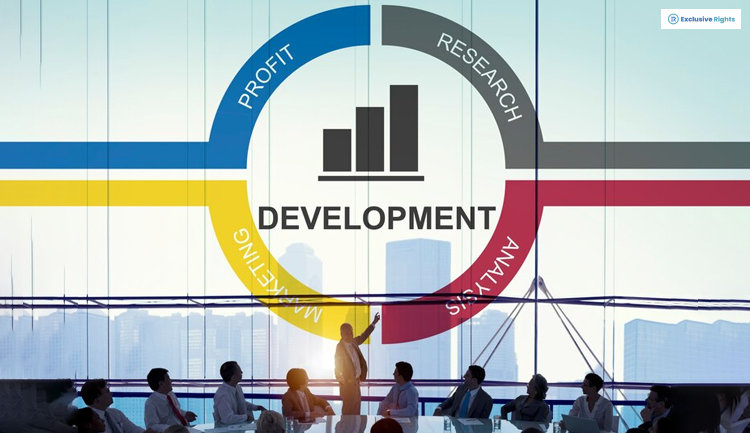
Table Of Contents
- What Is Organizational Development?
- Why Organizational Development Matters?
- Promotes Self Awareness
- Knowing and Understanding Change Management
- Leadership and Communication
- The Building Blocks of Organizational Development
- Change Management:
- Employee Engagement:
- Leadership Development:
- Team Building OD:
- Culture Transformation OD:
- What Is The First Step In Organizational Development?
- Assessment: Know Thy Organization
- The Organizational Development Journey: Step-by-Step
- Benefits of Organizational Development
- Navigating Challenges
- Ready to Start Your OD Journey?
- What Is The First Step In OD?
- Assessment: Know The OD
- Understanding the Diagnostic Phase In OD:
- Why Assessment is Crucial in OD?
- Common Assessment Tools:
- Expert Tip: Involve Your Team
- In Conclusion
A Beginner’s Guide To Organizational Development
It’s always in us that we look for development and growth. It’s important to bloom in the workplace and evolve better personally and professionally.
But what happens if we tell you that you can grow yourself in the workplace? That is when organizational development comes in. Organizational development helps to partner with individuals and teams and build a thriving rapport within the organization that would inspire people to fulfill their missions without any compromise. No matter what, your core values will always remain intact.
This article will talk in detail about the core principles of organizational development and how they help us evolve as a person and an employee.
What Is Organizational Development?

Adaptability and change are some of the most highly valued and common things in every organization. The changes don’t have a specific quantity, but they can either be small or even adjusted according to the dynamics of the moving workflow. It can be either a software update or even keeping up with digital records to enhance the progress of their project.
Organizational development deals with all. It helps in nurturing the growth of the overall environment and develops them in such a manner that is not only good for the company but also its individuals.
Organizational development is a familiar concept to change management that fosters an increased amount of efficiency by bolstering change. The desired outcome of this results in organizational efficiency.
Organizational development embodies a science-based procedure amalgamated with intensive market research to bring about change. It helps make the organization much more efficient and also helps to strategize the growth of the staff.
Why Organizational Development Matters?

Imagine an organization as a living entity. Just like any living being, it needs to evolve, adapt, and grow to stay healthy. That’s where organizational development steps in. It’s the guiding force that helps organizations tackle challenges, make improvements, and create a thriving, dynamic environment.
Promotes Self Awareness
The different ways of organizational development help in creating awareness and making others self-aware as well. It also helps with intense skill development and improves an individual’s adaptability as an individual. This also is a great way to mitigate any sort of biases and guide the leaders to create a humane organization.
Knowing and Understanding Change Management
The study of organizational development helps in coming up with a mindset that says change is the only constant. It comes up with a framework that helps in changing and managing the overall landscape of organizational development.
Leadership and Communication
Organizational development is a great way to show that it gives them a great scope to step up with challenges and take up effective leadership roles. This has immensely helped in bringing about people together.
The Building Blocks of Organizational Development

To understand OD, let’s break it down into its essential elements:
Change Management:
Organizational development often involves significant changes in processes, structures, and culture within an organization. Moreover, It’s about making the organization better.
Employee Engagement:
Happy, engaged employees are the fuel for organizational success. Moreover, OD focuses on ensuring employees are motivated, involved, and invested in the organization’s goals.
Leadership Development:
Effective leadership is the backbone of any successful organization. Moreover, organizational development identifies and nurtures leadership skills at all levels.
Team Building OD:
Cohesive teams are essential for collaborative work. Moreover, OD can include team-building activities to enhance cooperation and communication.
Culture Transformation OD:
Organizational development often targets shifting the culture of an organization. Moreover, It aims to create a shared set of values that everyone can rally behind.
What Is The First Step In Organizational Development?
Here are some things you should know before you dive into the intricacies of organizational development. They are:
Assessment: Know Thy Organization
In the OD world, the first step is research. Additionally, like a doctor seeing a patient, you need to understand your organization’s current health, strengths, weaknesses, and areas for improvement.
The Organizational Development Journey: Step-by-Step

Step by step to conduct OD:
Diagnosis: Just like a doctor diagnosing a patient, organizational development starts with understanding the organization’s problems and needs.
Planning: After diagnosis, a plan is laid out. Moreover, This plan details the steps needed to bring about the changes and improvements.
Intervention: This is where the action takes place. organizational development interventions can range from training and coaching to workshops, all designed to address specific issues.
Evaluation: After the intervention, the results are evaluated. Moreover, Did the changes lead to the desired outcomes?
Feedback and Iteration: Organizational development is an ongoing process. Moreover, Feedback is collected, and the organization continues to adapt and improve.
Benefits of Organizational Development
The fruits of organizational development labor are numerous:
- Increased efficiency and organizational development activity
- Improved employee morale and engagement
- Enhanced leadership and management skills
- Better communication and teamwork
- A culture of continuous learning and improvement
Navigating Challenges
Implementing OD objectives can pose roadblocks. Moreover, Skilled OD practitioners are often brought in to help steer through these hurdles.
Ready to Start Your OD Journey?
For those looking to dive into the world of organizational development, start by gaining a clear understanding of your organization’s goals and needs. Moreover, Seek expert guidance if needed and be prepared for a journey of continuous growth and improvement.
What Is The First Step In OD?
Imagine you’re about to set sail on a grand adventure. Before you hoist the anchor and catch the wind, you need to know where you’re going. The same principle applies to (OD). Moreover, If you’re looking to embark on this transformative journey, the first step is setting your course.
Assessment: Know The OD
The very first step in the world of OD is assessment. Moreover, Just like a doctor diagnosing a patient, you need to understand your organization’s current health, strengths, weaknesses. Moreover, areas in need of improvement.
Understanding the Diagnostic Phase In OD:
The examination phase within OD:
Gather Data for OD: Start by collecting information. This could be through surveys, interviews, or existing data sources. Moreover, The goal is to get a comprehensive view of your organization.
Identify Key Issues for OD: Once you have your data, it’s time to identify the critical issues. What’s working well, and what needs fixing? Moreover, These could range from process inefficiencies to employee engagement problems.
Set Clear Objectives: With the issues identified, set clear and achievable objectives for your OD efforts. What do you want to achieve? Moreover, What changes are you looking to implement?
Why Assessment is Crucial in OD?
Assessment is the compass that guides your OD journey. Moreover, Without a clear understanding of your organization’s current state, you’ll be sailing blind. Similarly, it helps you make informed decisions about what changes are necessary and where to focus your efforts.
Common Assessment Tools:
These are the common appraisal tools in organizational development:
Surveys: These are a great way to gather data on employee happiness, engagement, and other key factors.
Interviews and Focus Groups: Direct communication with employees can yield valuable data.
Performance Metrics: Data on productivity, turnover rates, and financial performance can be indicators of health.
Culture and Climate Assessments: These evaluate the values, beliefs, and overall atmosphere within the organization.
Expert Tip: Involve Your Team: It’s important to note that review shouldn’t be a siloed effort. Moreover, By seeking input from employees and stakeholders, you gain access to a diverse range of perspectives that can provide valuable understandings into the organization as a whole.
Moreover, This approach leads to review and, ultimately, better decisions.
Expert Tip: Involve Your Team
It is important that the research should not be a silent effort. Additionally, seeking perspectives from employees and stakeholders provides a range of perspectives that can provide valuable insights into the organization as a whole. This collaborative approach leads to detailed analysis and ultimately better decisions.
In Conclusion
OD is a process that helps organizations achieve their goals by improving their performance and culture. It involves identifying and addressing challenges, communication and collaboration, developing leadership skills, and promoting employee engagement.
Moreover, OD is not a one-time event but a journey of ongoing improvement and adaptation. By leveraging OD practices, organizations can evolve, innovate, and flourish in today’s ever-changing world. Moreover, if you want to achieve success, let the change begin with OD!
Read Also:









